Freedom To Create EP 01: KMRU
Freedom To Create is our new six-part talk show series, broadcasting live from Refuge Worldwide in Berlin. The bi-monthly episodes will explore themes of identity, migration, and creation through hour-long live interviews curated and moderated by Refuge Worldwide’s Editor, Chloe Lula.
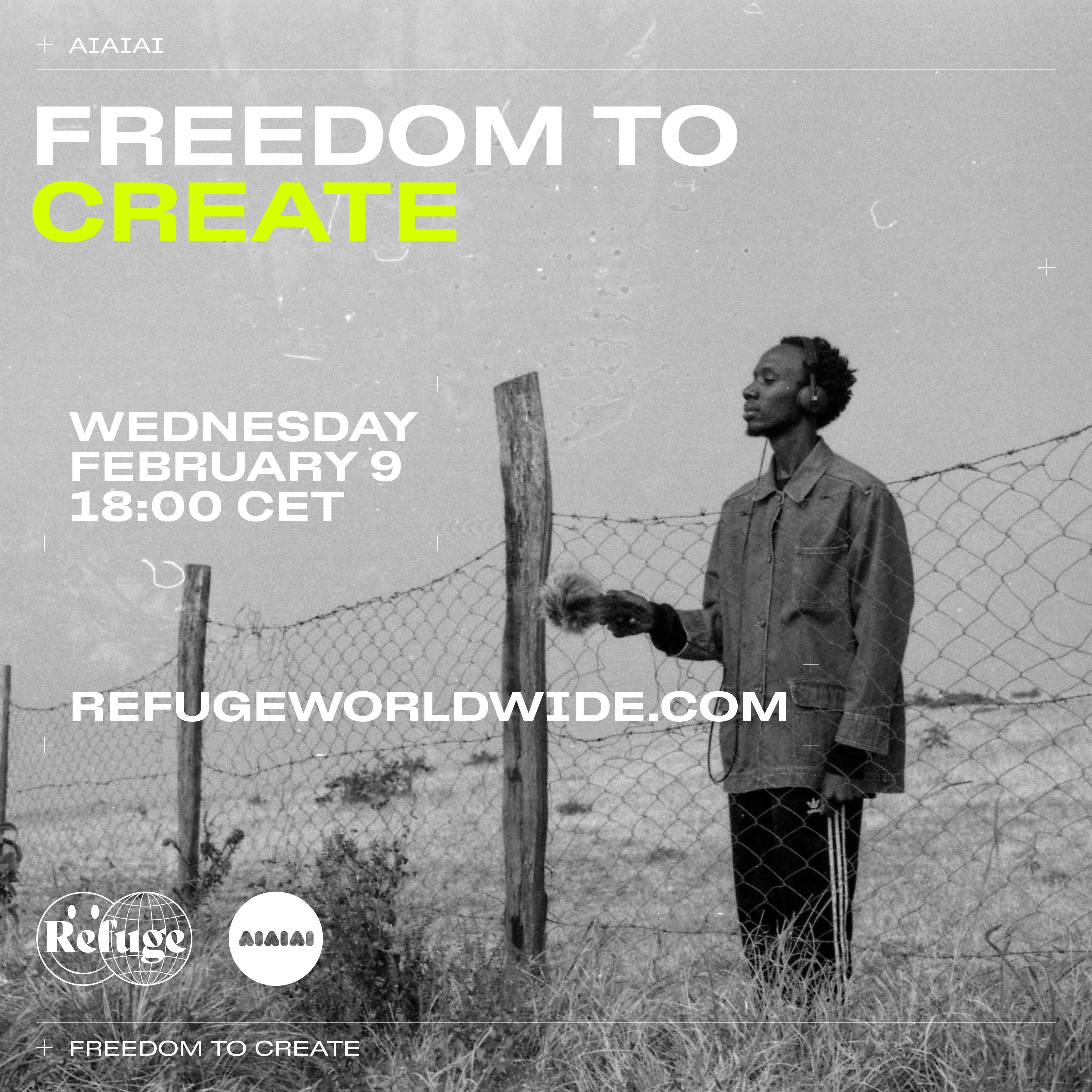
The series kicks off with Joseph Kamaru, AKA KMRU, the Nairobi sound artist who has garnered attention for innovative ambient works that utilize elements of field recording, improvisation, noise, and drone.
In addition to his work as a musician, KMRU is a core member of the Black Artists Database, a graduate student in sound studies at Universität der Künste Berlin, and the lead organizer of music production workshops around Nairobi. He discusses his work and his move from Kenya to Germany, and play selections of the music that has shaped his creative career.
Listen to the first episode in the SoundCloud player above, or scroll down to read the entire interview.
(Photo credits: Julia Sellman, Tereza Mundilová, Thukia, Claudia Mock, Filipa Aurélio)
Chloe Lula: Good evening, and welcome to the first episode of Freedom To Create, a six-part radio series launching as a partnership between Refuge worldwide and the Berlin-based headphone company AIAIAI. Each bimonthly episode we'll explore themes of identity, migration and creativity through hour-long live interviews and music curated and moderated by me. I'm Chloe Lula, and I'm the editor of Refuge Worldwide. Today I'm joined by Joseph Kamaru—whose artist name is KMRU (pronounced “Kamaru”)—a sound artist from Nairobi who has garnered attention for innovative ambient works that utilize elements of field recordings, improvisation, noise, and drone. In addition to his work as a musician, Kamaru is a core member of Black Bandcamp, a graduate student in sound studies at UDK Berlin, and the lead organizer of music production workshops around Kenya. Thank you so much for being here with me today.
KMRU: Thank you for having me here.
CL: So how are you? How are you doing? And how has the beginning of the new year been for you?
K: Yeah, I'm doing pretty well. This year has been super calm for me. And I guess, yeah, it started off quite calm. And I'm excited to for this year, I guess.
CL: So I know that you're enrolled full time in grad school. Can you tell me a little bit about what you're doing right now and what your classes are like?
K: Yeah. As for my masters at UDK. At the moment, I'm working on three projects. I don't have to go to school. So most times I'm just in the house and doing projects and seeing my professors in school for supervision. It's pretty chilled but also at the same time hectic because I have, like deadlines, both in school and outside school.
CL: So I know that you're enrolled full time in grad school. Can you tell me a little bit about what you're doing right now and what your classes are like?
K: Yeah. As for my masters at UDK. At the moment, I'm working on three projects. I don't have to go to school. So most times I'm just in the house and doing projects and seeing my professors in school for supervision. It's pretty chilled but also at the same time hectic because I have, like deadlines, both in school and outside school.
CL: And before I forget, you chose the first track that we played. Can you tell me a little bit about it?
K: Yeah, so the first track is by Malibu, I think called “Held,” from the PAN compilation. And yeah, I think this is my first time coming across her work. And I was just interested in how she uses her voice and also some field recordings in a way, or just how she thinks about sound. It's very ocean-like, watery-sounding. And yeah, I've just been following her work for quite some time and am enthusiastic about how she approaches composition. It sounds so free and engaging in a way.
CL: It's a really beautiful song. So you were hugely productive in 2020 and 2021. My understanding is that you had eight releases, including EPs on the Ostgut sub-label ATON, Warp Records, and Editions Mego. What inspired this surge of creativity? Or is this kind of a normal pace for you?
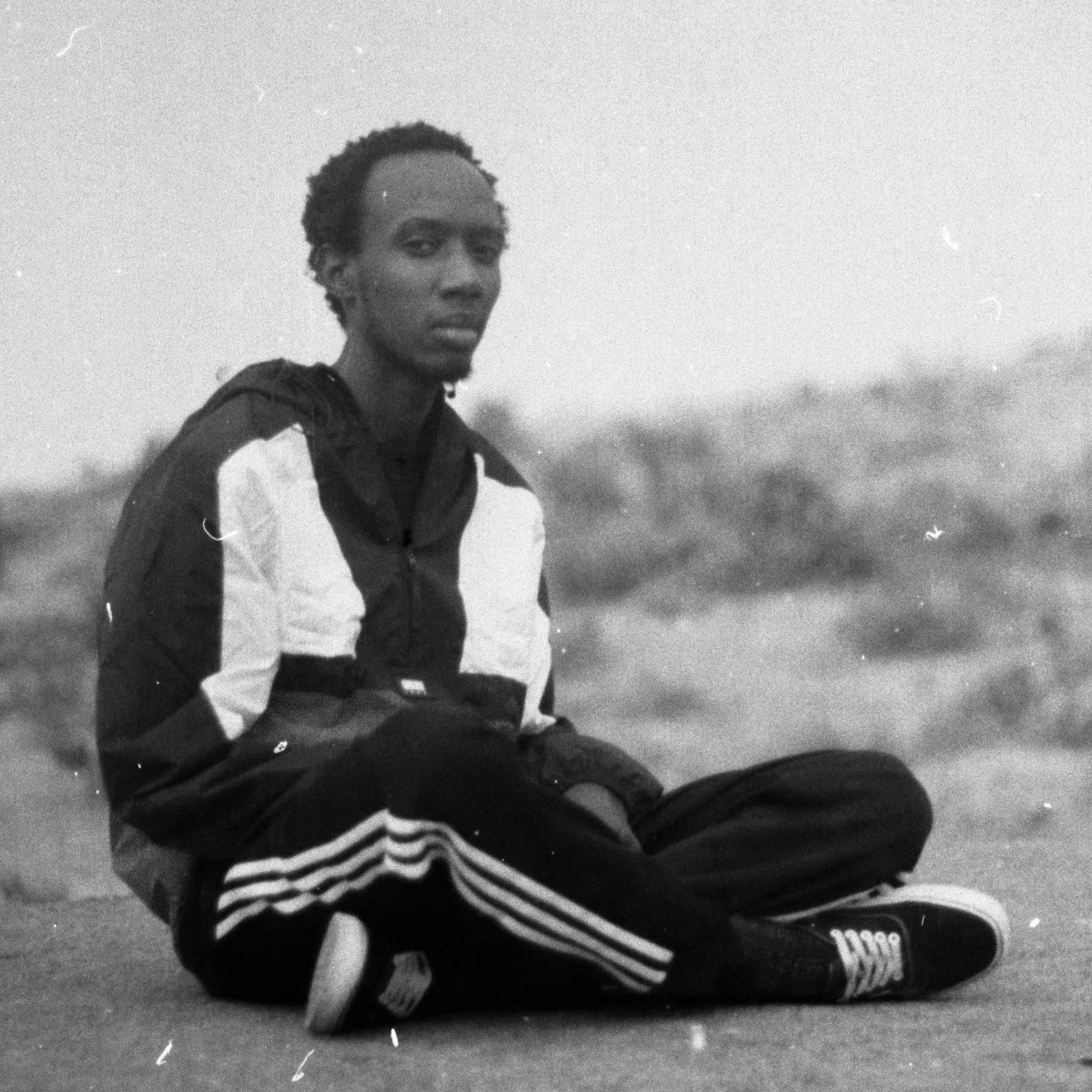
K: Yeah, I usually find myself writing that much music. I think it's the only way I feel how I can express myself best. Yeah, for like the past years, 2020 and 2021. In 2020, I was home a lot and was at a point where in my life was like trying to think about myself as an artist. And I'm, like Corona had just happened. And I was stuck in the house. Sometimes I was just making so much music and this like, propelled to the next year.
CL: I also want to discuss your early life in your introduction to production. So when did you relocate to Berlin from Nairobi, and what compelled your decision to move? I know we were talking a little bit before this interview, and you said it was to enroll in your grad school program. But I know you'd also visited before at one point.
K: Yeah, I moved to Berlin in 2020. In November at some point, yeah. Just before, like during lockdown, actually. And I'd moved for my studies at UDK, although I was in Berlin for CTM in 2019. And felt like a city that I'd want to move or like, experience more. And yeah, I moved a year and some few months ago.
CL: How has the transition been?
K: Yeah, the transition at the beginning of the move was a bit hectic and a bit different from what I expected, because I had already been here, but I understand it was because of the whole [Covid] situation. But eventually all like most of last year, I think, from May, things started opening up and meeting people and seeing more stuff that's happening in the city. And I think this year, like going back to Nairobi, and coming back, I just feel like yeah, it's changing a bit and I'm enjoying being here.
CL: How would you characterize the differences between Nairobi and Berlin? Especially just in the music scene.
K: Yeah, I think in Berlin, there's so much to see also in Nairobi, but I guess there's more stuff going on in Berlin compared to Nairobi. The scene in Nairobi is also very, like eclectic and diverse, with different artists and musicians doing different stuff, although, at some point, it gets boring. And I stopped, like going so much out when I was in Nairobi; I still don't go so much while I'm here. but I'm usually excited just to see different music and artists, or what people are thinking about artistically.
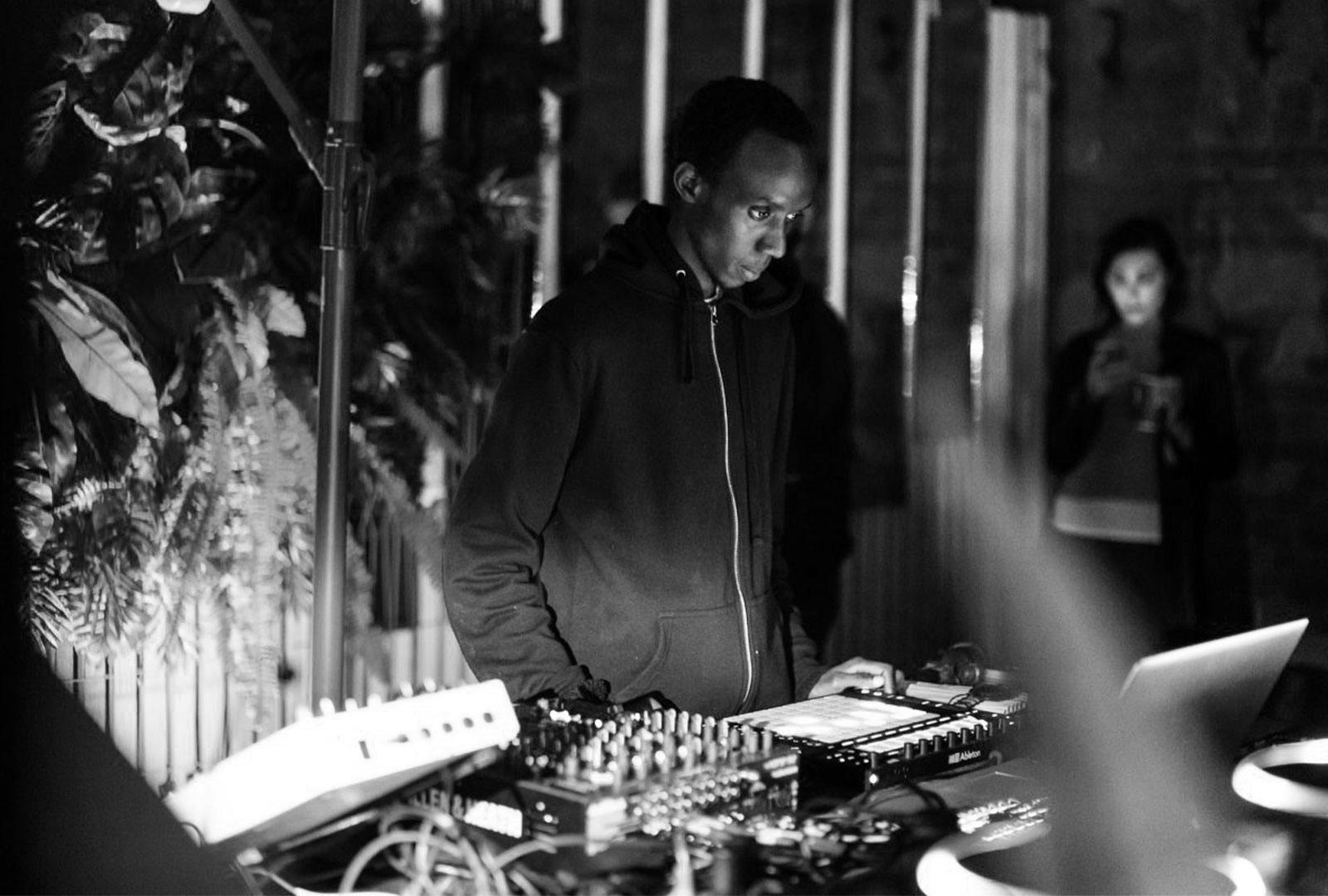
CL: Are there a lot of people in Nairobi doing similar work to what you're doing? Or was that part of the reason why you wanted to move to Berlin—to be around this kind of more experimental avant-garde?
K: In Nairobi, there's not so much. There are very few artists making this kind of music. Although the scene is small there, I felt like the community was also big, also outside Nairobi. So like artists like Slikbak or DJ Raph or Mundra, these artists do play shows in Nairobi, but sometimes you'd find them playing outside Europe in different contexts. And yeah, when I was here in Berlin, I still feel connected with people over there..
CL: So I asked you to bring a few tracks to play on the show. So do you mind selecting your second track and explaining a little bit about why it resonates with you and why you decided to play it today?
K: Yeah, for sure.
CL: So which track was that? Can you tell me a little bit about it?
K: Yeah, so this track is called “El Divisadero” by Chris Watson. And it's from his album, I think called El Tren Fantasma. The whole album is something that I discovered in 2017 at some point, and it happened when I was on a train for a residency, and I was thinking about what to do with the recordings. And back then, I was making music that was more rhythmic, or using drums and more danceable music. And yeah, this track was the first time I was like, “Okay, I can just use the recordings I have, and sort of make a piece just entirely with the field recordings themselves.” And yeah, like, I've been going back to this project more and more, because of how Chris Watson uses his field recordings.
CL: I actually had the opportunity to interview him once last year. And he talked a little bit about how he captures his recordings and it was really, really fascinating. I love his work as well.
I was reading an interview that you did with Philip Sherburne a little while ago, and I found it really interesting how you were talking about the different soundscapes in Nairobi and Berlin. You mentioned at the time—I don't know if this is still true—that you haven't done much recording in Berlin because it's so silent here. And you miss the sound of Nairobi, especially after having grown up in what you refer to as “noisy housing developments.” Can you elaborate a little bit on how the soundscapes are different, and how that affects your music and the field recordings that you're capturing?
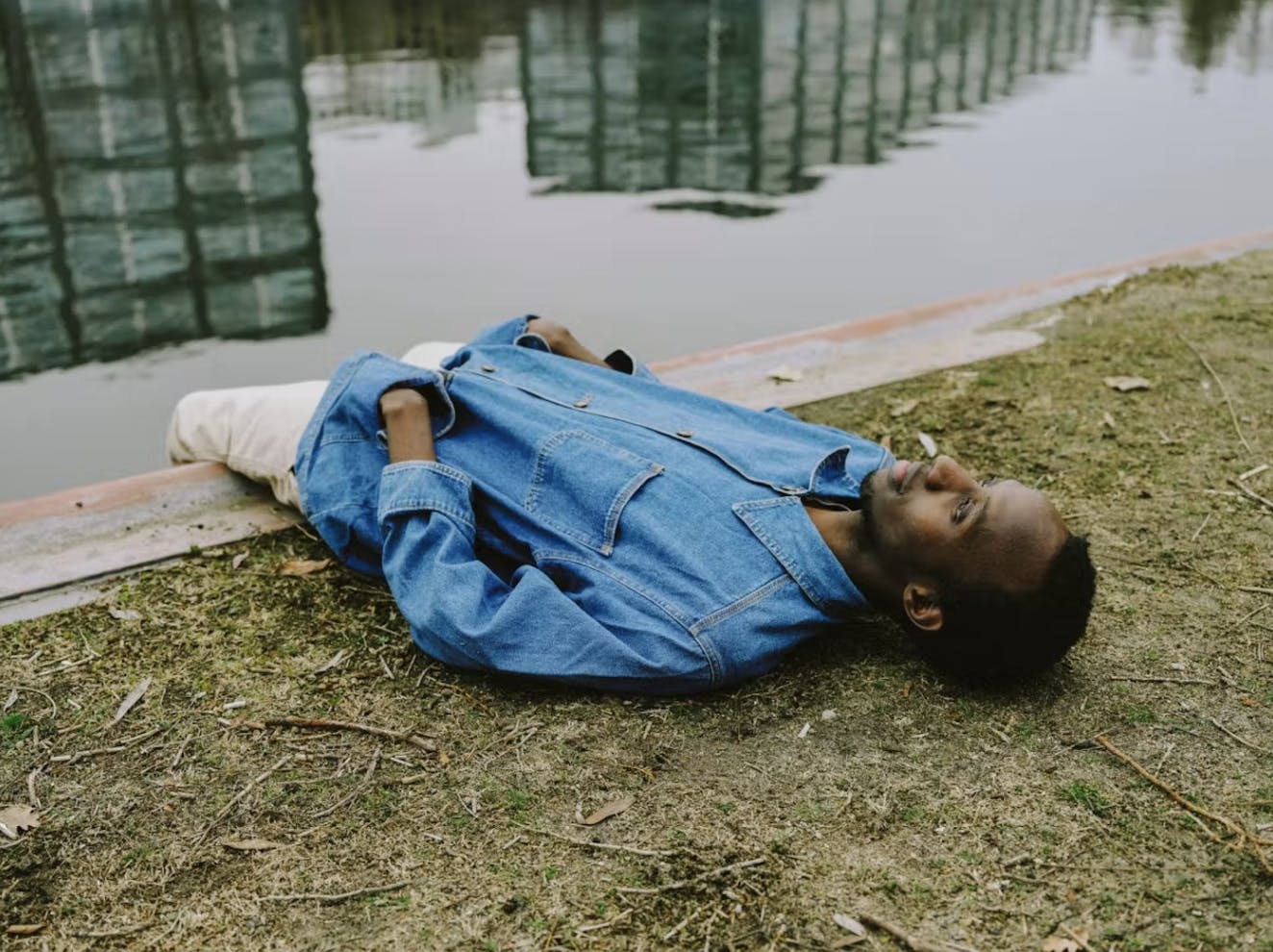
K: I think it became quite evident again, when I went back to Nairobi in December and came back in Berlin, that the noise level in Nairobi is way higher than here. So I think that's why I mentioned that Berlin is a bit silent. I know some parts of Berlin are a bit louder. But comparing Nairobi for example, with London, there's some similarities, but I always find Berlin a bit too silent, mostly in the winter. I guess this has affected how I approach my music compositionally. I tended not to record as much here when I was moving, or thinking much about, like, myself as a field recordist in this new space. I think so much about the places where I record, so it takes time for me to sort of feel comfortable in a new space where I want to record and establish why I’m recording there. I've done a few recordings in Berlin, mostly for my school projects and also in different places that I go to. But yeah, I haven't done as many recordings here compared to Nairobi.
CL: How do you decide where you want to do a recording? What makes a place worthy of a recording?
K: Um, I guess I usually first sort of go to different places, just take a train, and stop somewhere without having any predetermined thoughts of what I really want to record. Maybe this time I wouldn't carry my recorder, so I just go there and sort of acquaint myself with the space and decide if I want to come and record. But other times I'm thinking of a particular project or something in mind that I want to put across, and I just know what I really want to record.
CL: And so, I know you first experimented with more progressive house music styles. How did you fall into ambient? How did this become your sonic home?
K: Yeah. When I started making music, I was trying so many styles of music and trying to learn production through this. When I was with my friends in Nairobi, who used to make music, or like electronic music, this is the direction of the music that most people are making. So I find myself also making sort of house or techno, I don't know how to define it at the moment. And I was still using recordings of sounds or natural soundscapes. But this wasn't very, like, intentional. And when I started playing DJ sets in Nairobi, I was leaning more towards this music that I was making, which wasn't very rhythmical, but I knew that people would in sort of conform or try to ... they'd want to dance, and I wanted to make people sort of listen to what he was making. And I think it's when I came to Berlin for CTM, then went back home, I got some sort of reaffirmation to just to keep doing what I was doing. And in 2019, I just decided to continue this KMRU project and focus on field recordings and sound.
CL: I'm really interested in your creative process, if you could talk about it a little bit. I mean, technically, how you capture recordings, and then turn them into music, and how you listen to your environment. At what point do you decide that there's a sound you want to record?
K: Yeah, I think I find myself outside a lot, listening, or recording. And you're mostly listening, because listening has been quite a huge part of my practice. And I think, just from the listening perspective, and deciding what I really want to record, it translates so like, naturally with, with a production where it happens quite intuitively. So when I'm, for example, doing a project or wanting to make a new piece, I have, like, tons of field recordings maybe. And other times, I'd go outside and just record like maybe a specific length of a recording, and come back to the studio and sort of decide on a hard approach using the recording itself as sort of as an instrument, and processing it or maybe leaving it as is and sort of creating a narrative from the recording to creating, like a new piece around it. Because I find recordings or field recordings having so much textures and sounds which I could use. This happened when I bought my first Zoom recorder, I was just amazed at how much sound was around me and decided I'll just be recording sounds and engaging more and trying to learn more about what I can learn from the environment.
CL: It must be such a meditative practice, to just constantly be listening to and engaging with the environment. I feel like that's not something I do regularly unless I really force myself into that kind of space. But you must be in that kind of space all the time.
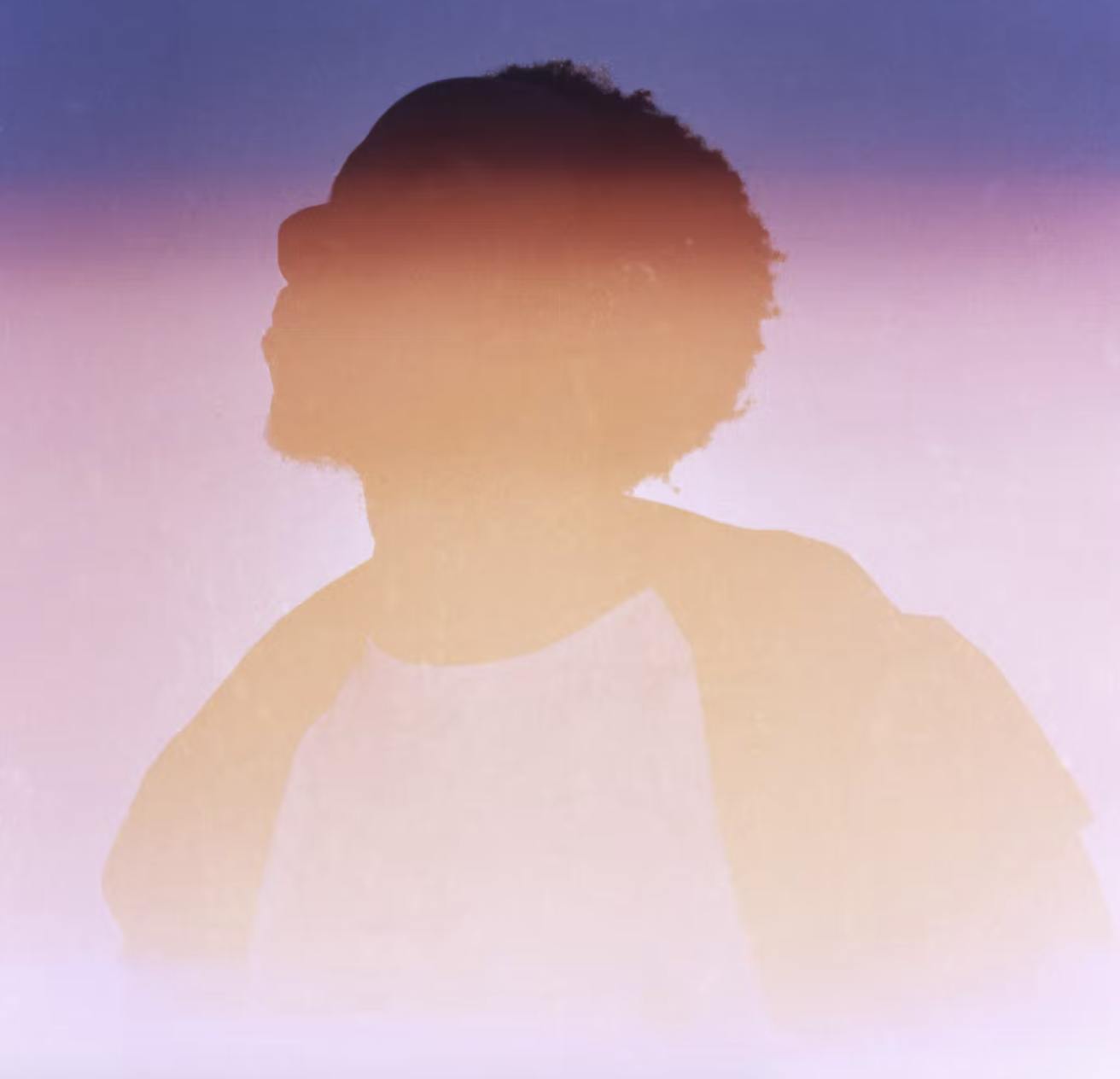
K: I think it's like ... the places where I leave sort of provoked this sort of feeling of just being calm and slow, and being aware of my surroundings.
CL: Do you mind playing the third track that you have picked out? What was that piece of music?
K: Yeah, this piece was by Jessica Ekomane. And it's called “To Whom Shall Inherit The Earth.”
CL: Why did you choose to bring this one?
K: I chose this one because I think it was my first encounter with her. And I love what she does. And when I was getting into Max MSP, this was the first track that I came across. I loved just how textural it is and the approach that she used to compose the piece itself. And it's just a beautiful track. I don't know much about the track itself. But yeah, I'm grateful that I met Jessica, and she's also like my teacher in school.
CL: That's really cool. If I'm not mistaken, did she also do something at Berghain? Or with Ostgut, earlier this year? Last year?
K: Yeah, she did something last year.
CL: We were just drinking a tea while listening to this track, and I asked you a little bit about the narratives that you bring into your music and you know, whether or not you bring explicit narratives into your songs. You said that sometimes you do. Could you talk a little bit about that? Are there any examples of songs where you've really tried to evoke the narrative of a place?
K: Yet, for different projects I usually sort of conceptualize the information I want to bring across with a track, and I also think about, like, how people would listen to it and how I'd want them to listen. And a lot of the music for example, on my album, reflect a lot on a trip I did in Montreal. There’s one track I made at my friend's place. I was just like, improvising on a piano, but sort of incorporating field recordings from what was happening within the jam that I was playing. But there are other projects that are very sort of concise and concrete, and I have a specific idea or like concept of what I want to put across. This is mostly when I'm working on long form pieces, or pieces that are present as different formats, maybe text or video.
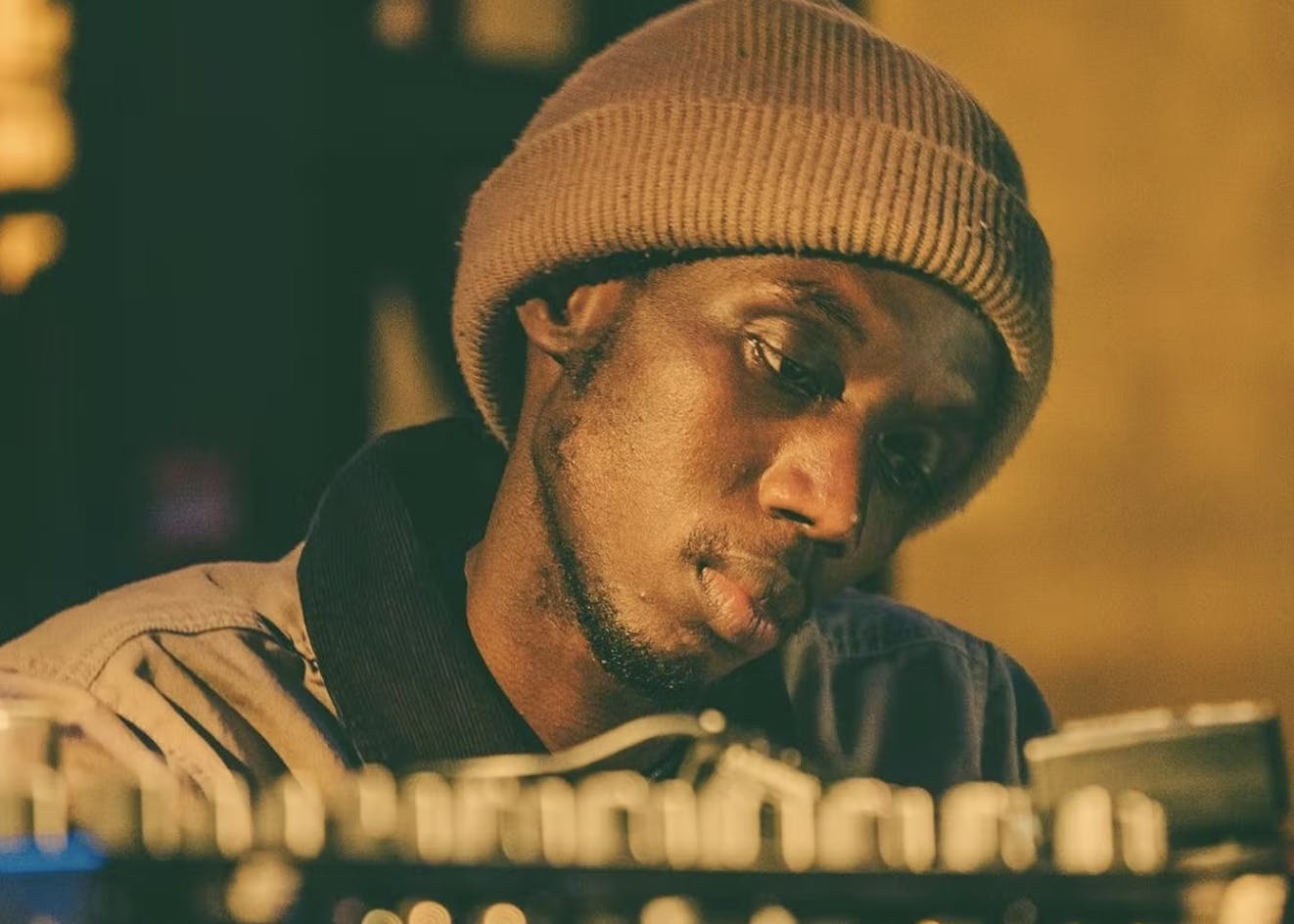
K: There’s also a project that I'm working on for school at the moment, which sort of deals with the role of archives in museums. I got to reach out to a Belgian Museum last year. I'm making this artwork that’s made of posters, and there's also a record, and also a radio piece that features the museum’s catalog numbers of field recordings from Eastern and Central Africa.
CL: That sounds really cool. Do you bring any element of improvisation into your live sets as well? Or do you usually kind of leave that at the production stage and then have things more or less planned out when you perform?
K: When I'm performing? It depends. When I do very short performances, I usually do not plan so much. And if I have very long sets, I usually structure a bit, but also have some sense of improvisation. So I usually have this synthesizer, the Lyra. I don't think so much what will happen when I'm playing, so I tune in live when I'm playing different pieces of music and sort of embrace the spontaneity of what will happen within a performance.
CL: Oh, that's really challenging. Because I've only performed live one time, and I thought it was terrifying. Just the big idea that anything could happen out of your control. So I respect people who do that.
I wanted to switch gears a little bit and talk about your involvement with the Black Artist Database. I'm not exactly sure how deeply involved you are, but could you talk a little bit about what you're doing with them and when you started?
K: Yeah, so I got involved with the project in 2020 when I was still in Nairobi. At the moment, I'm not very actively involved because of school and everything. But I was mostly dealing with the curation of things that are happening within Africa, for example, this project that we're doing with a festival. I did a curation or just adding a list of names of artists from Africa to the database.
CL: And I believe you helped put on workshops, or you teach workshops, in Nairobi as well.
K: Yeah, in Nairobi, I've been doing the Nairobi Ableton User Group project for some time. And yeah, me and a friend of mine usually organize some workshops and musicians and artists just come and we share skills with different music makers.
CL: Can you tell us a little bit about this piece of music you’re playing?
K: Yeah, this piece is by Ana Roxanne. It's called “Slowness.” For me personally, I reflect a lot about how contemplative the piece is, or even this whole record or even her music. And this one specifically makes me think about slowness, and how we can slow things down. Because sometimes I see things very slowly, I don't know. And try and just slow things down because we live in a very, very, very fast world. And yeah, I think this music does this, too.
CL: That's a really important skill to have, to be able to slow things down a little bit. I was reading an interview that you did with SHAPE, which is the platform that you're a part of. And you said that “all arts and music is and should be something that probes and aspect of society.” Can you elaborate a little bit on this?
K: Yeah, um, maybe going back to thinking about maybe African music or just music from home? I usually see or like to think about music from the continent in how it portrays daily lives or like, life happenings through sound and the happenings of things. Maybe in a very social level, or even political and I guess, sound and music that I make or like, just music in general should sort of provoke something.
CL: I mean, would you consider yourself to be an activist? Or has activism played any role in your life? Are there any specific political or social causes that are important to you, or that you maybe evoke in some abstract way in your music?
K: At some point, it’s just the fact that I'm a Black person making experimental music, and I find myself leaning towards, like the listening aspect of, of my work a lot. Even if it's, like, whatever music that I put out, this all is maybe something personal or like, any, something that I want to put across through my work, to change something that's happening on a societal level. And I do this a lot when I write text about my work, or when I'm presenting, like site-specific works, that people come in and engage with the spaces and like, hear, or like, listen to the sounds that I've recorded in different places and tried to put in context of what's happening there and sort of incite them to, to know something out there.
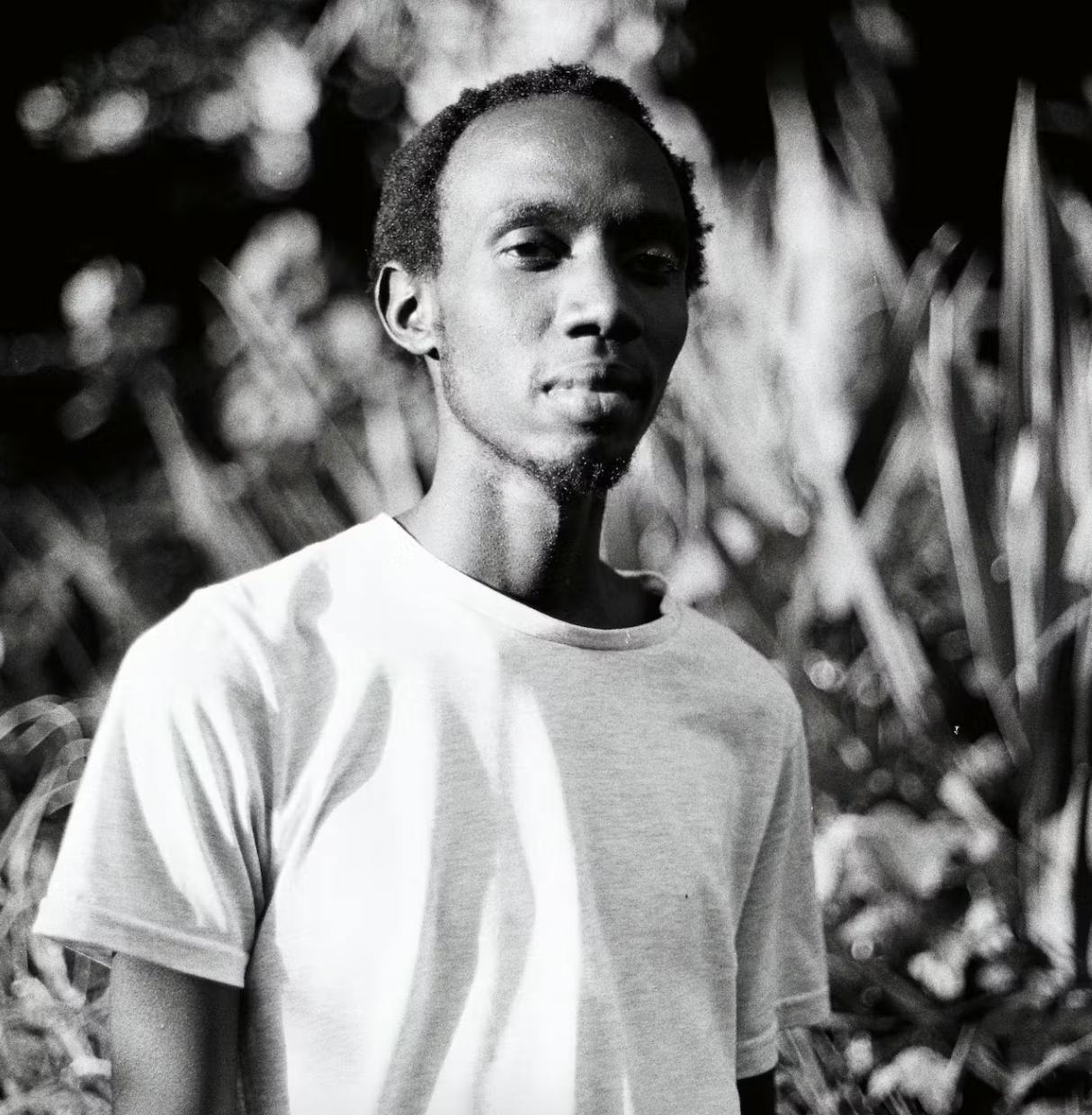
CL: We're really on the cusp of what's hopefully a paradigm shift as clubs reopen. And I think people are generally trying to think more critically about nightlife and representation generally. And I know that's a big part of what the BAD has been doing, and has been very instrumental in starting those conversations. How do you hope that the industry and our scene will change as things start reopening again in the next month or two?
K: I guess I feel like there's just a need for more awareness of what's happening in the scene. I say this a lot. And it's always very problematic. And yeah, it's, I don't know. Yeah, just like an awareness of what's happening and hopefully, a change that would happen also when things get back at some point this year with clubs and gigs opening.
CL: You mentioned before we started the show that you had quite a bit coming up with things that had been postponed, that are going to be happening in the spring. So what do you have lined up and what are you working on right now?
K: Yeah, I have a tour hopefully in the US in March and April. And I'm looking forward to this. At the same time, I might tour with Big Thief in June in Europe. And what I'm working on at the moment ... I’m just like making so much music. I don't know when it would come out, but I felt like last year I didn't make as much music.
CL: Well, I'm pretty envious of your rate of creative output. It's pretty impressive. Is there anything else you wanted to talk about that I didn't think to ask you over the course of our interview?
K: I think you covered everything.
CL: Okay, cool. Well, thank you so much for joining me. It's been really great speaking with you. And thank you everybody for listening to this first episode of this new six-part series on Refuge Worldwide. I will see you next time, and we will close out the show with your last track for us, if you want to briefly tell us what it is and why you chose it.
K: Yeah, this last piece is by my friend called Aho Ssan. I'm also releasing an album with him at some point this year. I'm glad that I met him and his music is out there.
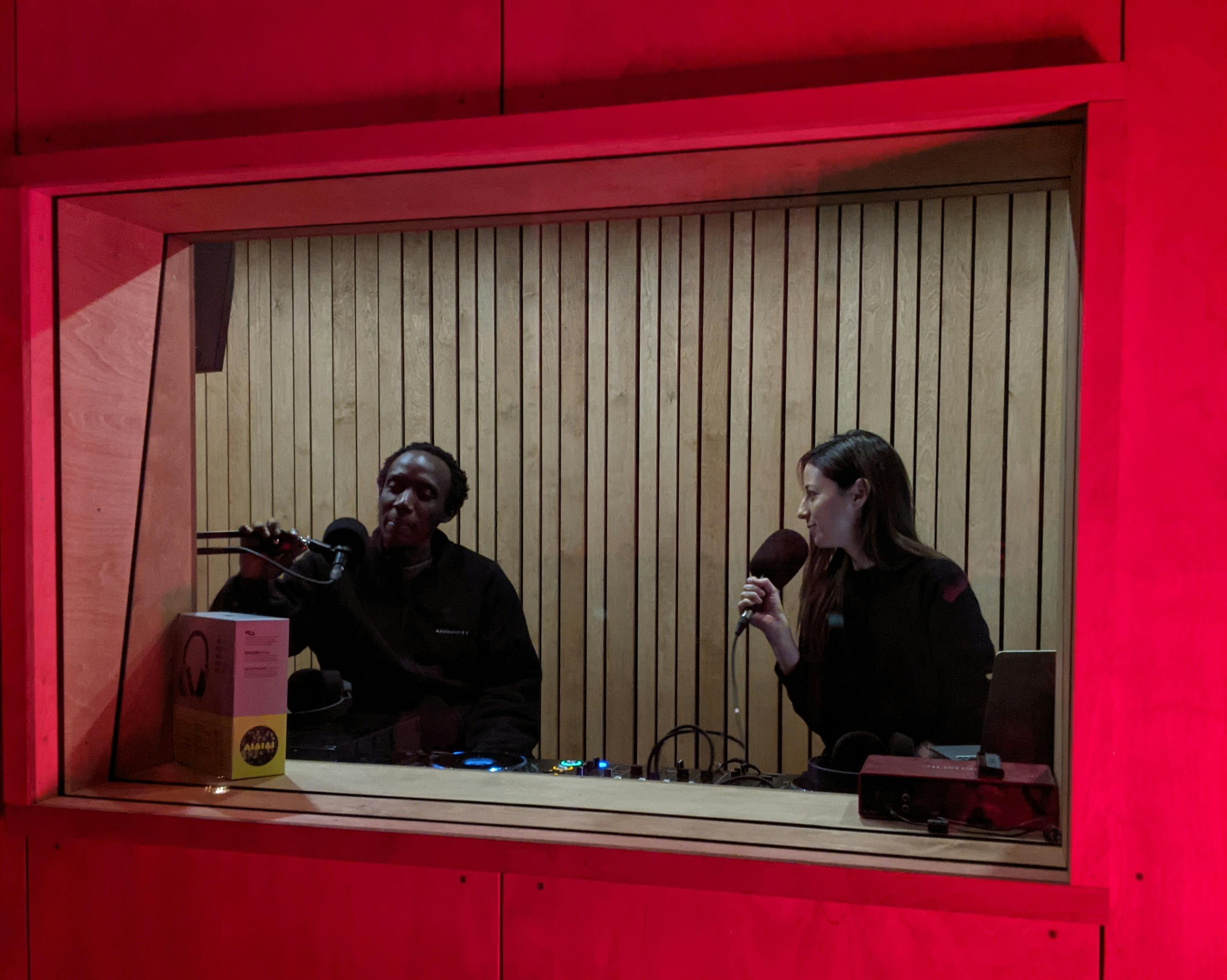
Posted on Mar 16, 2022 in Community